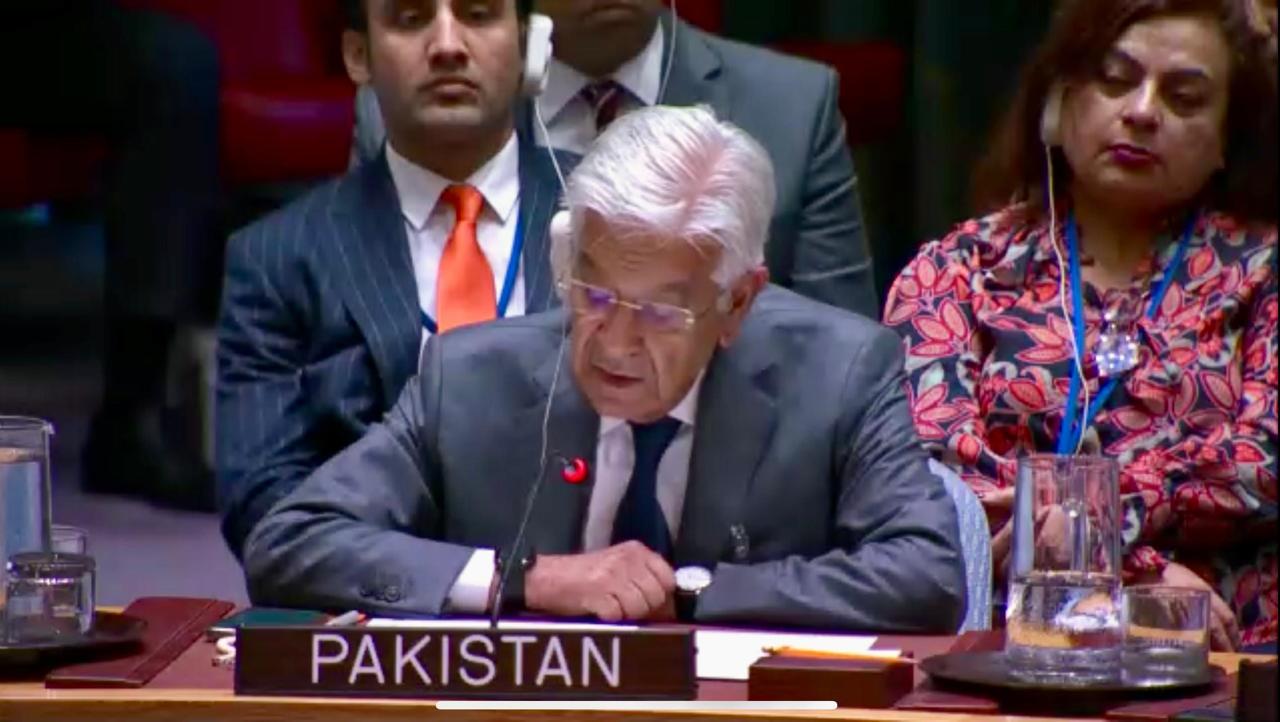Pakistan Calls for Global Oversight of AI at UNSC Debate
Minister Khwaja Muhammad Asif describes AI as “the most consequential, dual-use technology of our times."
Mumtaz Hussain
UNITED NATIONS: Defence Minister Khwaja Muhammad Asif has urged the international community to establish robust governance for artificial intelligence (AI) to safeguard peace and security during a high-level debate at the United Nations Security Council.
Presided over by South Korean President Lee Jae Myung, the debate focused on the complexities, multifaceted impacts, and responsible use of AI in global affairs.
Minister Asif described AI as “the most consequential, dual-use technology of our times,” highlighting both its potential to drive socio-economic progress and its risks in exacerbating inequalities and destabilizing international order.
Minister Asif warned that unregulated AI could facilitate disinformation campaigns, offensive cyber operations, and the development of advanced weaponry. He specifically noted the recent use of autonomous loitering munitions and high-speed dual-capable cruise missiles in the sub-continent, marking a dangerous precedent in conflicts between nuclear-armed states.
He emphasized that AI lowers the threshold for the use of force, compresses decision-making timelines limiting diplomatic options, and blurs boundaries between cyber, kinetic, and informational domains.
In response to the growing AI challenge, Pakistan launched its first National Artificial Intelligence Policy in July 2025. The policy aims to build AI infrastructure, train one million professionals, and ensure ethical and responsible AI use. Its six pillars include innovation, public awareness, secure systems, sectoral transformation, infrastructure, and international partnerships.
Pakistan also hosted the Regional Consultations on Responsible AI in the Military Domain (REAIM) in June 2025, in collaboration with South Korea, the Netherlands, and Spain, emphasizing responsible AI applications in defense.
Minister Asif stressed that AI governance must align with the UN Charter and international law, maintain human oversight in critical decisions, prevent destabilizing applications, and ensure that developing countries have a voice in shaping global AI standards.
He concluded with a call for collective action, stating, “We must ensure that AI is harnessed to promote peace and development, not conflict and instability. Let us preserve the primacy of human judgment in matters of war and peace, ensuring that innovation is guided by principles of morality and humanity.”
The debate comes amid growing global concern over the rapid weaponization of AI and the need for comprehensive international norms to manage its impacts on security and development.


Comments are closed.